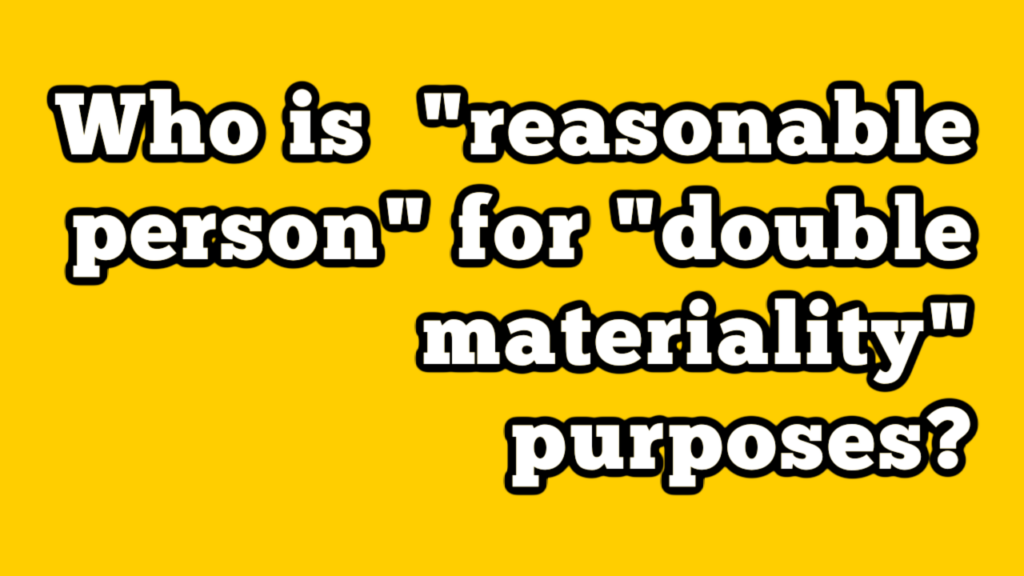Who is “a reasonable person” for “double materiality” purposes?

Sasja Beslik wades into the “materiality” debate – here’s an excerpt from this note:
Double materiality is still up for debate and requires further analysis.
“Yes, in principle the impacts of a company or a portfolio on the climate or the wider environment can be material — but how do we know what exactly is a material impact?” asks Matthias Tager, a PhD candidate in Environmental Policy and Development at the London School of Economics.
The answer, says Tager, fundamentally depends on one’s view of why information on environmental impacts should be material in the first place. In his view there are two probable reasons:
– Environmental impacts could translate into financial risks, for example, through legal liabilities or harms to a company’s reputation.
– A reasonable person might consider the information material for reasons other than direct financial repercussions.“The question of what double materiality means thus turns into a question of who the ‘reasonable person’ is, and what their interests are, which in turn define what counts as material – in other words, [what’s] important to them,” Tager explains.
And I do agree with Matthias on this one. Do we regard boards and CEOs, who legally do not have an obligation to take the environmental impacts of their business operation and their products and services into account, as a “reasonable person”?
We have seen over the course of history what that “reasonable” really looks like, and we know that CO2 emissions are going up, and we know that income equality is increasing, and we know that tangible improvements of the underlying non-sustainable economic system need to change, at double speed.
